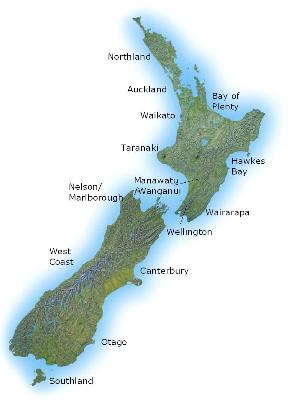
by Miriam Bell

There can be little doubt that the skyrocketing fortunes of house prices around New Zealand dominated market discussion this year. Auckland’s market has been hot for some time, but that heat spread solidly outwards in 2016. This led to rising prices and tighter supply, as well as declining yields, in the Waikato, the Bay of Plenty, Northland and Wellington markets.
While the Super City’s rampant price growth slowed down slightly as the year wore on, the latest QV data still had the average value of an Auckland property at $1,051,387. This means that speculation over whether the city’s market was in bubble territory and heading for a crash or, at least, a correction has remained rife. It also means the city’s house price to income ratio has become one of the most stretched in the world.
In a bid to reign in both the Auckland, and the wider New Zealand, market, the Reserve Bank announced another set of LVR restrictions in July. These LVRs require investors nationwide to have a 40% deposit, or equity, when applying for new loans. Although the LVRs did not come into force until October, the banks started to observe them immediately.
To date, the LVRs appear to have moderated the market but there are questions over how long that will last. The Reserve Bank has increasingly made it clear that it wants to have the ability to introduce debt-to-income ratios – in order to further curb the market should it need to.
Auckland’s severe housing shortage is one of the fundamental drivers of its charged market. With a shortage of over 30,000 dwellings and migration at record levels, 2016 saw a focus on trying to boost supply. To this end, the controversial Unitary Plan, which paves the way for greater intensification and major increase in housing, was finally adopted by the council – although aspects of the plan are currently under appeal.
It is widely agreed that apartments are part of the solution to Auckland’s supply problem. The city’s skyline sports ample evidence of the amount of apartment development taking place. But, over the last few months, several big apartment developments have fallen through. Problems with finance are considered to be the cause. There are also concerns that construction capacity constraints could impact on production.
On a practical level, meth contamination of rental properties was found to be the number one concern for landlords by a number of surveys. Confusion over contamination levels, and both testing and remediation processes led to the establishment of a committee to develop an applicable standard. Now, the Ministry of Health has produced new recommendations on meth contamination levels, while the draft standard has just been released for public comment.
Another major issue for landlords was tenant liability for damage. In April, the Court of Appeal Osaki decision left landlords liable for accidental damage caused by tenants. In response, the Tenancy Tribunal adopted a rule whereby if damage to a rental property was due to carelessness and the landlord has insurance, the tenant does not have to pay for the damage. This led to several controversial rulings against landlords. Eventually, then Housing Minister Nick Smith proposed some potential law changes to address the issue. Consultation is ongoing.
The drive towards the provision of healthy rental homes was another hot topic throughout 2016. Factors of interest ranged from the new Residential Tenancy Act requirements for landlords to install smoke alarms and insulation proposals through to proposals that a Warrant of Fitness for rental properties be introduced.
Likewise, the prevalence and influence of foreign buyers in the New Zealand housing market continued to a topic of much debate. While Land Information New Zealand is now releasing quarterly data on the amount of people with overseas tax residency buying New Zealand property, the data’s validity has been vigorously contested.
| « Property in the blood | Free Investment Property Showcase Events: Auckland, Wellington and Christchurch » |
Special Offers
No comments yet
Sign In to add your comment

© Copyright 1997-2026 Tarawera Publishing Ltd. All Rights Reserved